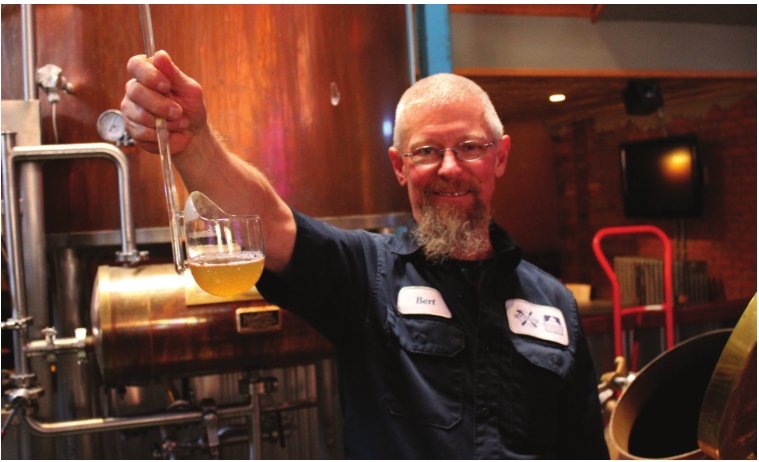“We’ve been doing malting barley research for about three years now,” said Ashley McFarland, coordinator of MSU’s Upper Peninsula Research and Extension Center. “In our travels throughout the state, a lot of older farmers approached us and said, ‘Did you know that MSU had its own barley at one time?’ It was really interesting to hear these stories.”
The grain, Spartan barley, was created by MSU researchers in 1916. It was quite popular among local farmers and eventually spread across the country.
“It had a lot of notoriety in the state of Nebraska at one time,” McFarland said. “It was the largest, widest (barley strain) grown in the state.”
By the 1960s, Spartan barley had all but disappeared, replaced by new strains with higher yield and other desirable traits. But with the recent boom in Michigan’s beer scene, researchers like MSU Professor Emeritus Russ Freed realized that a revived Spartan barley could provide a quality, locally sourced option for Michigan’s beer industry. Freed, an agronomist and plant breeder with MSU’s AgBioResearch department and an MSU faculty member of over 40 years, went to work locating seeds.
“I got in touch with the people in charge of the barley germplasm repository in Aberdeen, Idaho, and they sent me five grams of the seed,” Freed said. “I planted 80 seeds of it in the greenhouse on Farm Lane.”
Of those 80 plants, 78 germinated. Those plants were harvested and shipped off to the Upper Peninsula Research and Extension Center to be planted. This summer, some of the barley was harvested and sent to be malted by Byron Center’s Pilot Malt House and distributed to a few brewers in Michigan to create some test beers.

“Through variety breeding, we have really developed this homogenous flavor profile, so a lot of barley just pretty much tastes the same,” McFarland said. “But this is something we call a heritage variety. The flavor profile is much different.”
Southwest Michigan’s New Holland Brewing is one of the first breweries to put the barley to work. Last week its taphouse, Pub on 8th, debuted Russ’s Revival, an entirely Michigan-sourced beer named after Freed.
“It’s a very limited release, only a small amount was made in our pub brewing system,” said Joel Petersen, vice president of marketing at New Holland Brewing. “It can be found only on draft, not bottled or canned.”
While the brewing industry is booming in Michigan, making beers with exclusively in-state products is still difficult.
“Much of the malt comes from out west or from Wisconsin,” said Larry Judge, owner of Mitten State Malt. The Okemos-based malt house, the first in the Lansing area, is slated to open in early 2017. While there isn’t enough Spartan barley for malt houses to start production until at least next year, Judge is looking forward to working with the product.
“It’s going to be pretty exciting when we can get it and grow it,” he said. “It’s good, and the legacy is fascinating.”
Support City Pulse - Donate Today!
Comments
No comments on this item Please log in to comment by clicking here